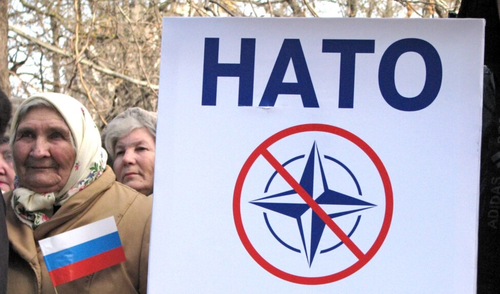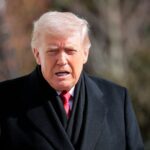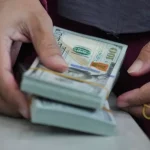
A man in Germany was sentenced to three years in prison for mere political speech related to the war in Ukraine. He reportedly called Ukraine a "terrorist state" and prominently displayed the Russian military symbol "Z" in online posts.
Ukrainian media has picked up on the story and promoted it, apparently in glowing approval. For example Ukrainska Pravda said he was arrested for supporting 'Russian aggression'. The case was first reported in Germany's Die Welt based on a Hamburg court ruling.
The indictment reads: "The defendant justified Russia's aggressive war against Ukraine on social media and ran a Telegram channel whose name and logo were based on the ultranationalist Russian Drugaya Rossiya (Other Russia) party."

The sentence was a stiff penalty given that reportedly teh 'supporting Russian aggression' charge was tacked on to an existing illegal weapons possession charge, and he already had a criminal record.
Starting in March and April of last year, as the Russian invasion was in full swing, multiple German states began announcing they would prosecute 'pro-Russian propagandists' and had outlawed display of the 'Z' symbol.
From there legislation picked up steam at the federal level to get Russia-Ukraine war related expressions banned as "hate speech":
"The Russian attack on Ukraine is a crime and whoever publicly approves of this war can thereby become criminally liable," Marek Wede, a spokesperson for Germany's Interior Ministry, said at the time.
The Ukrainian government in the opening months of the war specifically lobbied European governments to restrict the speech of their citizens in relation to the conflict.
Ukrainian Minister of Foreign Affairs Dmytro Kuleba in the opening months of the war wrote on Twitter, "I call on all states to criminalize the use of the 'Z' symbol as a way to publicly support Russia's war of aggression against Ukraine. 'Z' means Russian war crimes, bombed out cities, thousands of murdered Ukrainians. Public support of this barbarism must be forbidden."
Certain pro-Russian symbols are even banned at demonstrations and street rallies in German cities. This has created a further slippery slope on questions of whether authorities would then interpret anti-NATO signage as "justifying Russian aggression".
There has been limited dissent over the anti-speech laws in Germany, but Sabine Beppler-Spahl, chair of the German liberal think tank Freiblickinstitut, previously pushed back in Spiked, saying that "pro-Russia demonstrators can now accuse Germany of hypocrisy. After all, the very same German politicians who frequently attack the repression of dissent in Russia are now repressing dissent in Germany."
A man in Germany was sentenced to three years in prison for mere political speech related to the war in Ukraine. He reportedly called Ukraine a “terrorist state” and prominently displayed the Russian military symbol “Z” in online posts.
Ukrainian media has picked up on the story and promoted it, apparently in glowing approval. For example Ukrainska Pravda said he was arrested for supporting ‘Russian aggression’. The case was first reported in Germany’s Die Welt based on a Hamburg court ruling.
The indictment reads: “The defendant justified Russia’s aggressive war against Ukraine on social media and ran a Telegram channel whose name and logo were based on the ultranationalist Russian Drugaya Rossiya (Other Russia) party.”

The sentence was a stiff penalty given that reportedly teh ‘supporting Russian aggression’ charge was tacked on to an existing illegal weapons possession charge, and he already had a criminal record.
Starting in March and April of last year, as the Russian invasion was in full swing, multiple German states began announcing they would prosecute ‘pro-Russian propagandists’ and had outlawed display of the ‘Z’ symbol.
From there legislation picked up steam at the federal level to get Russia-Ukraine war related expressions banned as “hate speech”:
“The Russian attack on Ukraine is a crime and whoever publicly approves of this war can thereby become criminally liable,” Marek Wede, a spokesperson for Germany’s Interior Ministry, said at the time.
The Ukrainian government in the opening months of the war specifically lobbied European governments to restrict the speech of their citizens in relation to the conflict.
Ukrainian Minister of Foreign Affairs Dmytro Kuleba in the opening months of the war wrote on Twitter, “I call on all states to criminalize the use of the ‘Z’ symbol as a way to publicly support Russia’s war of aggression against Ukraine. ‘Z’ means Russian war crimes, bombed out cities, thousands of murdered Ukrainians. Public support of this barbarism must be forbidden.”
Certain pro-Russian symbols are even banned at demonstrations and street rallies in German cities. This has created a further slippery slope on questions of whether authorities would then interpret anti-NATO signage as “justifying Russian aggression”.
There has been limited dissent over the anti-speech laws in Germany, but Sabine Beppler-Spahl, chair of the German liberal think tank Freiblickinstitut, previously pushed back in Spiked, saying that “pro-Russia demonstrators can now accuse Germany of hypocrisy. After all, the very same German politicians who frequently attack the repression of dissent in Russia are now repressing dissent in Germany.”
Loading…





